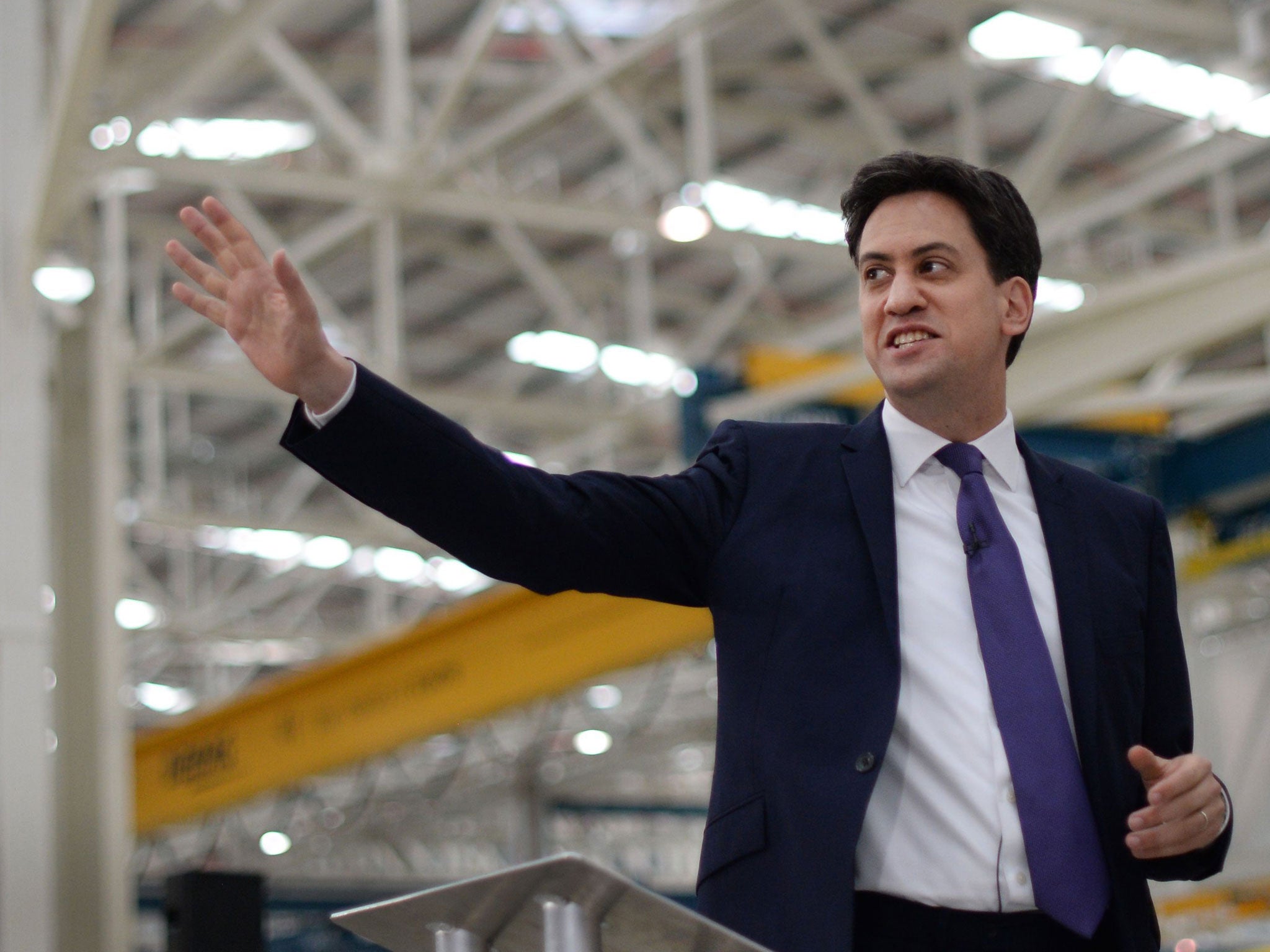Election 2015: Ed Miliband targets minimum wage for maximum gain
Labour promises five years of increases to close gap on average earnings - and puts reversing inequality at heart of election strategy

Labour will pledge today dramatically to increase the minimum wage paid to millions of low-income workers in the biggest shake-up of the scheme since its inception.
Under plans to be set out by Ed Miliband, Labour will commit itself to raising the minimum wage significantly faster than growth in average pay over five years if the party wins the next election.
Currently, the minimum wage is just 53 per cent of median earnings and has fallen by 5 per cent in real terms since 2010. Labour pledged that its target for increasing the minimum wage would help to reverse years of growing income inequality.
But the move will lay Mr Miliband open to charges from the Conservatives that he is taking a dangerously interventionist approach to wages that could damage economic growth and lead to rises in unemployment.
Labour badly needs to reignite support, with recent polls showing the party has slipped behind the Tories.
Read more: Ed Miliband sells ‘fairer’ Britain to voters
Labour is also backing proposals to set sector-by-sector minimum wages – so that minimum hourly rates of pay could be higher in some jobs than in others. Under current arrangements, the minimum wage – which is due to rise to £6.50 in October – is set by the independent Low Pay Commission, which is made up of representatives of industry, unions and academics.
It is tasked with striking a balance between the need for wage growth and concerns about the impact on employment and economic growth.
But Labour believes that the commission has been too cautious in setting the minimum wage.
A third of all women in work, nearly two-fifths of 16- to 30-year-old employees and 43 per cent of part-time workers are now characterised as low-paid. Under Labour’s plans, which will be set out with the publication of a report into low pay by Alan Buckle, the deputy chair of the consultancy firm KPMG, the remit of the commission would be significantly strengthened.
It would be given a five-year target to reduce the gap between national median pay and the minimum wage – in a similar way that the Government sets the Bank of England an inflation target.
While Labour will not commit itself to an exact level until closer to the election, party sources said it would be ambitious. The party claims the policy will benefit the Exchequer through reduced spending on in-work benefits and higher tax receipts. The Government currently spends more on benefits and tax credits for families in work than it does on unemployed families at a cost of around £3.2bn.
Under the plan, if the commission felt it could not meet the target, it would have to write to ministers explaining and justifying its position.
“Policymakers should set the target to be stretching rather than easy, aiming to make a significant difference to people’s lives and to put pressure on businesses to adapt their business models, to chart a course to a higher-wage, higher-skills economy,” the report concludes.
It also suggests that the Low Pay Commission should be allowed to set sector-by-sector minimum pay – and launch investigations to improve productivity in those areas of the economy that are particularly affected by low wages.
Those industries, the report suggests, that might be able to pay higher minimum wages include IT, construction, business and financial services.
Areas of the economy such as hospitality, care work and the service sector could have slower increases in the minimum wage – but with a focus by the commission on driving long-term productivity gains that could allow wage increases.
“The evidence suggests the need for a more intelligent approach that puts more pressure on sectors that could afford to pay more, and also supports low-paying sectors to tackle low pay and low productivity,” Mr Buckle says in his report.
“The comparison with other countries also suggests that ambitious wage floors can provide an effective incentive for employers to move towards higher-skill, higher-wage business models.”
Launching the report today Mr Miliband will point out that it was a Labour government that first introduced the minimum wage but the party now needs to “go further” to “make work pay”.
“Britain is still one of the lowest-paid countries among the world’s advanced economies,” he will say. “So we have to go further. We have to restore the link between hard work and building a decent life for your family.
“A Labour government will establish a clear link between the level of the minimum wage and the scale of wages paid to other workers in our economy.”
The Buckle report rejects calls by campaigners for Labour to introduce a mandatory living wage but says all central government departments should ensure that their subcontractors pay the living wage to any staff working on government contracts. It also rules out setting a separate minimum wage for London, arguing it would exacerbate existing inequalities.
Subscribe to Independent Premium to bookmark this article
Want to bookmark your favourite articles and stories to read or reference later? Start your Independent Premium subscription today.

Join our commenting forum
Join thought-provoking conversations, follow other Independent readers and see their replies